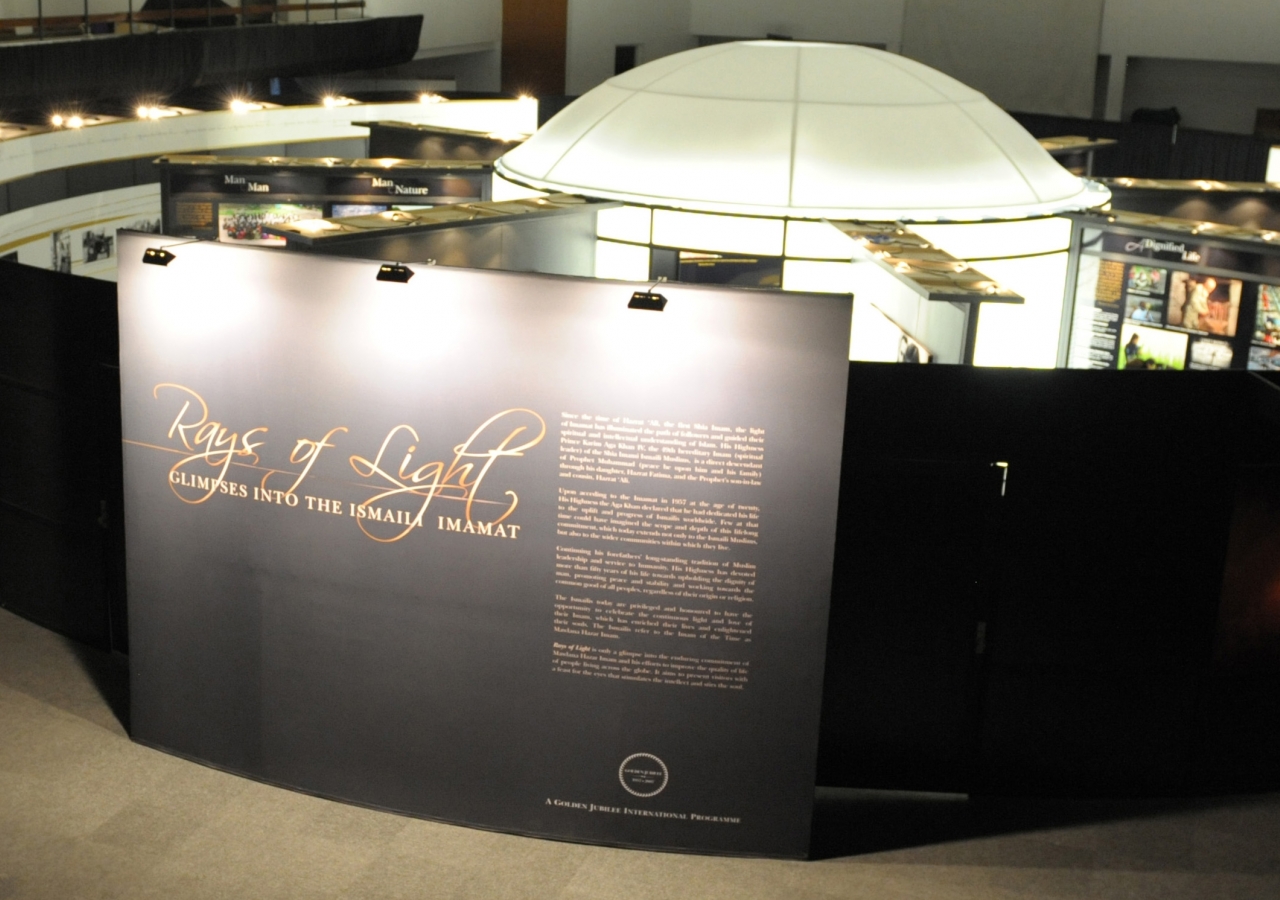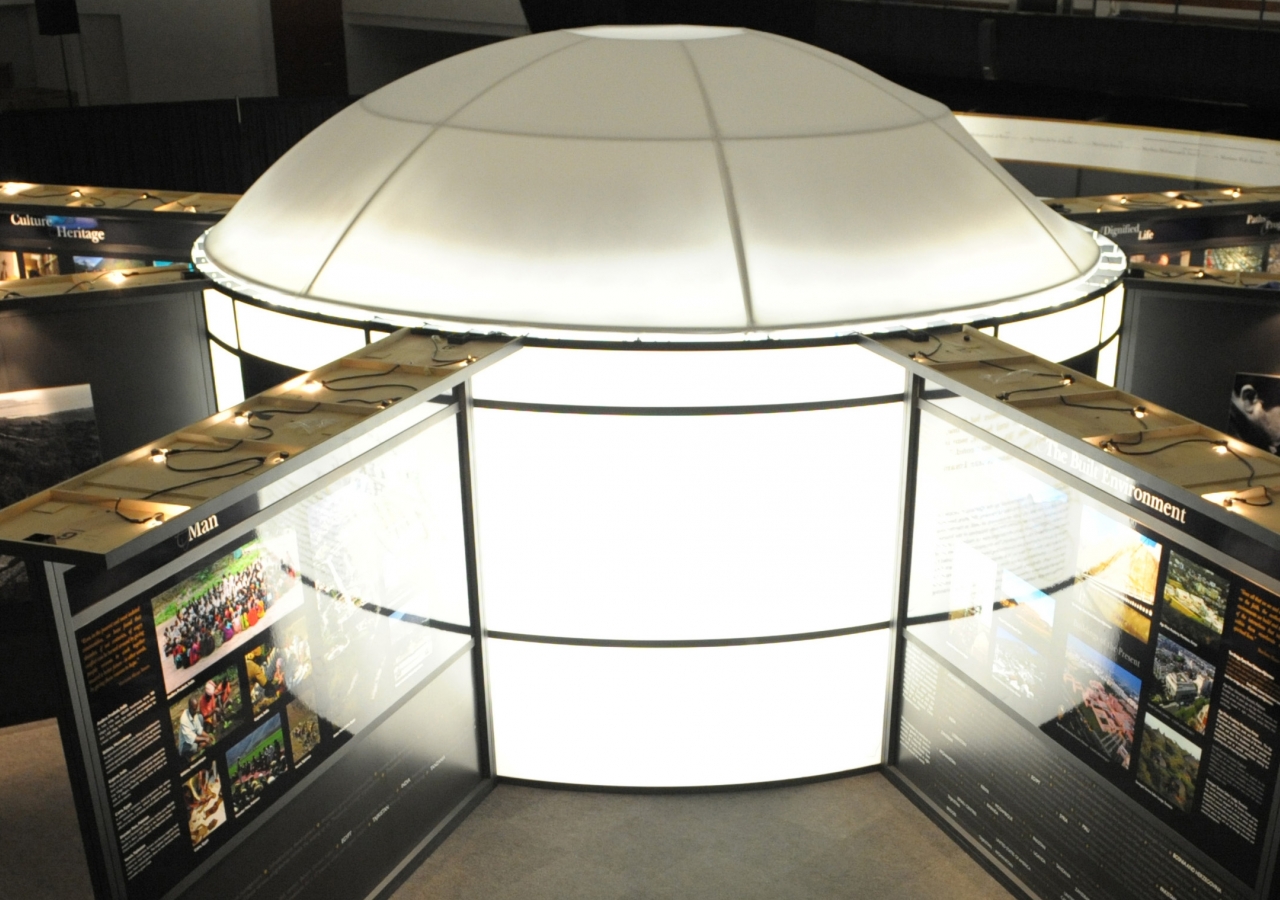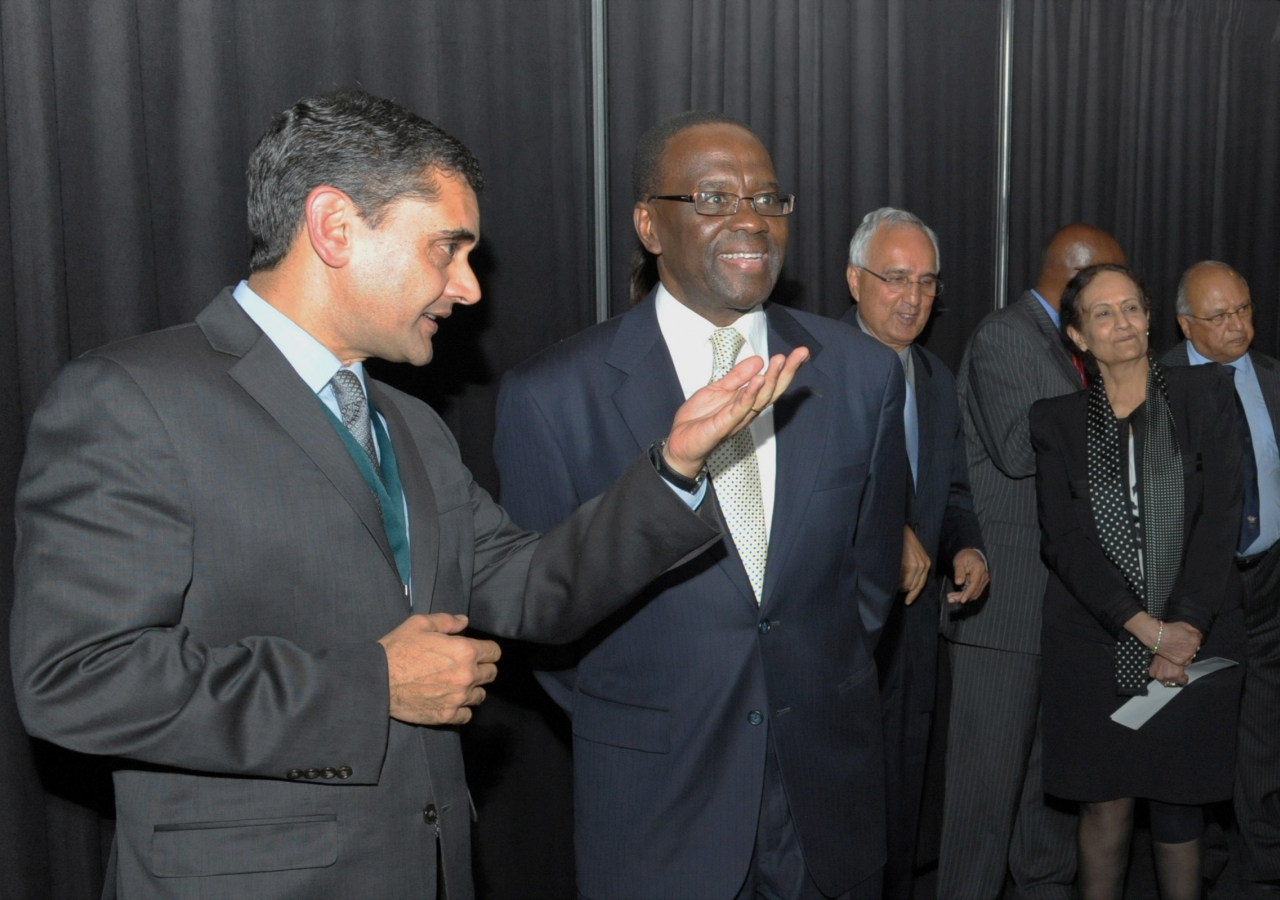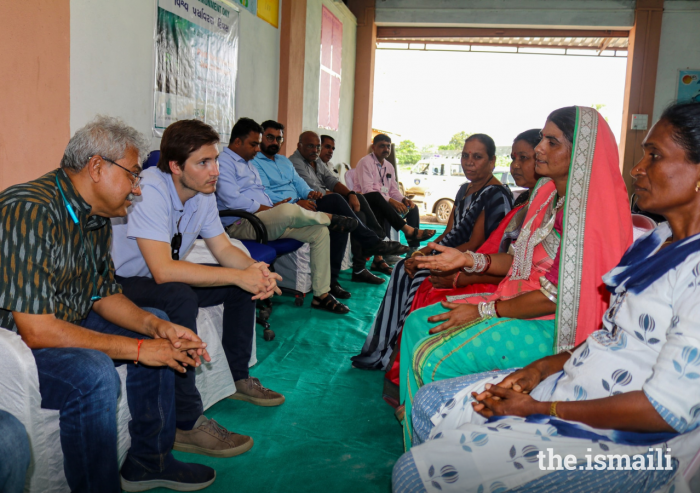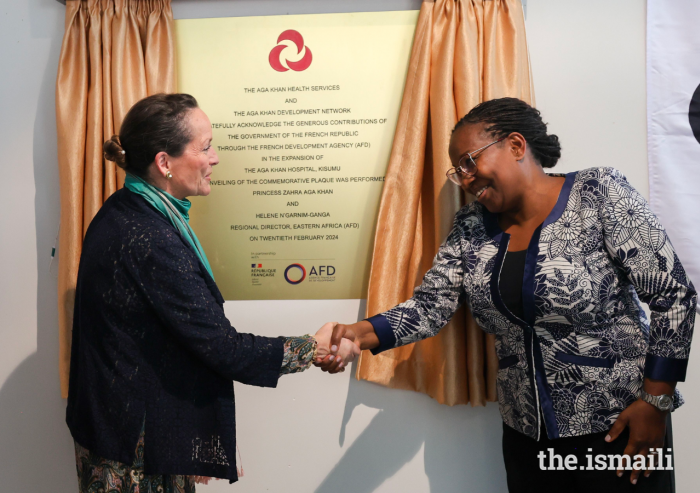Kenya recently concluded a year-long commemoration marking fifty years since its independence from British colonial rule. Since 12 December 1963, the spirit and optimism of the Kenyan people and their willingness to work hard in realising their goals has carried the country far.
Today, Kenya's economy is the largest in the East African Community – well diversified and supported by a robust private sector and market-friendly policies. Its educated population has helped it to become a resilient leader in information, communication and other industries, and a recently adopted constitution is expected to further stabilise the country's governance.
The Ismaili Imamat has been an important partner to Kenya during these past five decades. Confident in the future of Kenya, Mawlana Hazar Imam built upon foundations laid by his grandfather, investing in quality education, healthcare, economic and cultural development.
Some of that important history is captured in the photographic exhibition RAYS OF LIGHT: Glimpses into the Ismaili Imamat, which recently opened in Nairobi. First launched in 2008 in Paris, the exhibition – a Golden Jubilee International Programme – offers glimpses from the life of Mawlana Hazar Imam, the first fifty years of his Imamat and the immense scope and work of Aga Khan Development Network institutions around the world.
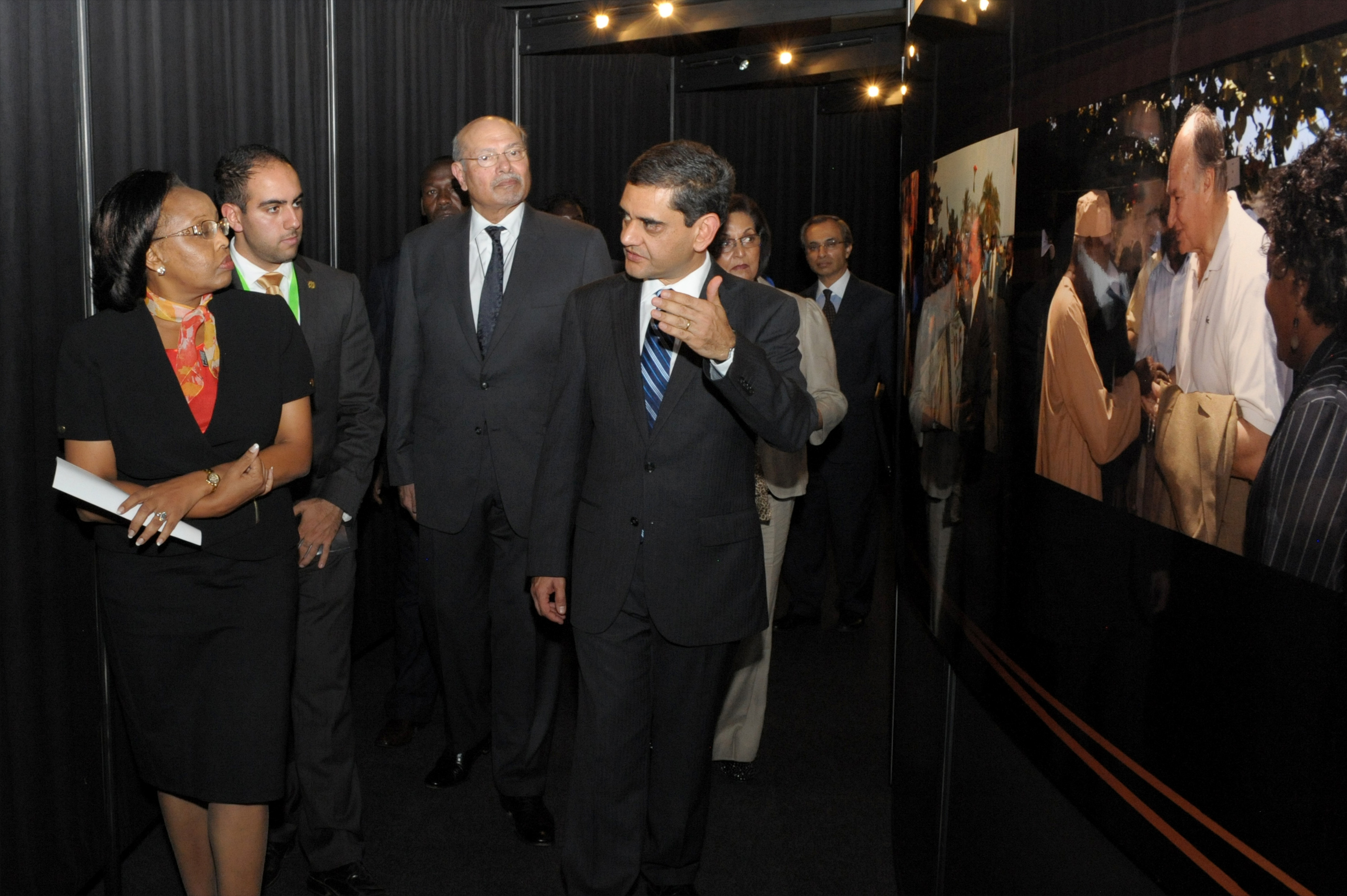 Cabinet Secretary Phyllis Kandie and Ismaili Council for Kenya President Nawaaz Gulam tour the RAYS OF LIGHT exhibition in Nairobi, accompanied by senior Jamati and AKDN leaders. TheIsmaili / Aly Z. Ramji
Cabinet Secretary Phyllis Kandie and Ismaili Council for Kenya President Nawaaz Gulam tour the RAYS OF LIGHT exhibition in Nairobi, accompanied by senior Jamati and AKDN leaders. TheIsmaili / Aly Z. Ramji“Kenya has been a grateful beneficiary of the Aga Khan's generosity for years,” said Dr Phyllis Kandie, Kenya's Cabinet Secretary for East African Affairs, Commerce and Tourism. Speaking at a RAYS OF LIGHT event held on 19 May for AKDN partners and donors, she described the development network as “the biggest and most reliable provider of health and other social development services.”
The AKDN's presence in Kenya goes back almost one hundred years. Since the time of Mawlana Sultan Mahomed Shah, the Ismaili Imamat has established institutions and made significant investments towards improving quality of life in the country.
Thirteen schools of the Aga Khan Education Service, Kenya provide quality pre-school, primary, secondary, and higher secondary education. The Aga Khan Academy, Mombasa takes excellence in education to a new level, offering the International Baccalaureate curriculum to outstanding students, and teaching them to become lifelong learners and ethical and pluralistic leaders.
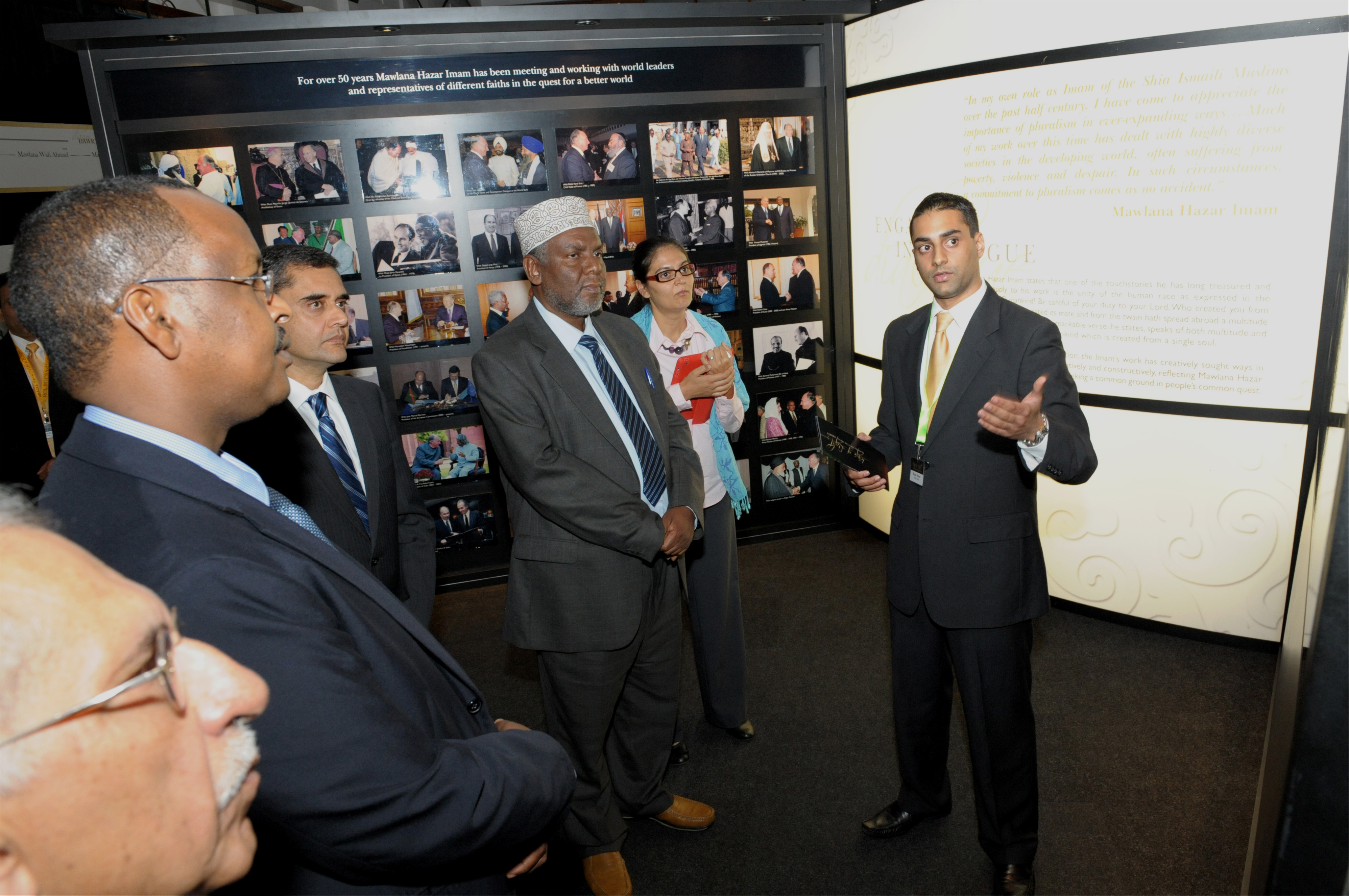 Dr Ahmed Yassin, Director General of the National Museums of Kenya and Ismaili Council for Kenya President Nawaaz Gulam listen attentively during a guided tour of RAYS OF LIGHT in Nairobi. TheIsmaili / Aly Z. Ramji
Dr Ahmed Yassin, Director General of the National Museums of Kenya and Ismaili Council for Kenya President Nawaaz Gulam listen attentively during a guided tour of RAYS OF LIGHT in Nairobi. TheIsmaili / Aly Z. RamjiLikewise, the Aga Khan Health Service, Kenya has a long history of delivering quality healthcare to Kenyans. Together with the Aga Khan University and the Aga Khan Foundation, it operates one of the most comprehensive private not-for-profit health care systems in the developing world. Its community health programmes reach some of the most vulnerable groups in society – especially childbearing women and young children – with low-cost, proven technologies such as immunisation, systematic prenatal care, aseptic deliveries, and oral rehydration therapy for diarrhoeal disease.
“The Aga Khan epitomises all areas of development be it social, cultural or economic,” said Dr Ahmed Yassin, Director General of the National Museums of Kenya. “All essential services are provided whether it is education or health or other social development.” He noted that Hazar Imam's initiatives served to improve the living conditions of people without regard to their origin, gender or ethnicity.
Dr Kandie was equally appreciative of the Aga Khan Fund for Economic Development's investments in Kenya: “Diamond Trust Bank, Jubilee, the Serena Group of Hotels, Property Development and Management Limited, Air Uganda and Nation Media Group are accepted as leaders of expertise in their fields.”
The Fund – which has also invested in electric power, agricultural processing, hotels and tourism development and telecommunications – creates jobs, economic opportunity and lending stability to Kenya, even in turbulent times. Dr Kandie acknowledged Mawlana Hazar Imam's contribution to the vibrant economic fabric of East Africa, noting that the AKDN “employs thousands.”
At another RAYS OF LIGHT event held for the Kenyan Judiciary on 20 May, Chief Justice Dr Willy Mutunga highlighted the Aga Khan Foundation's East African Madrasa programme and its school strengthening programme which has benefited “almost 800 public and communities schools in the poorest parts of Kenya including slums in Nairobi over the last few years, in a programme for marginalised children that continues today.”
“The Aga Khan has demonstrated global leadership,” continued Dr Mutunga, who noted that the Imam is seen by “a wide range of global stakeholders as a unique champion of pluralism around the world.” He also recognised Hazar Imam's emphasis on the important roles played by civil society and good governance.
RAYS OF LIGHT: Glimpses into the Ismaili Imamat continues in Nairobi until 25 May before departing for Sydney, Australia.

